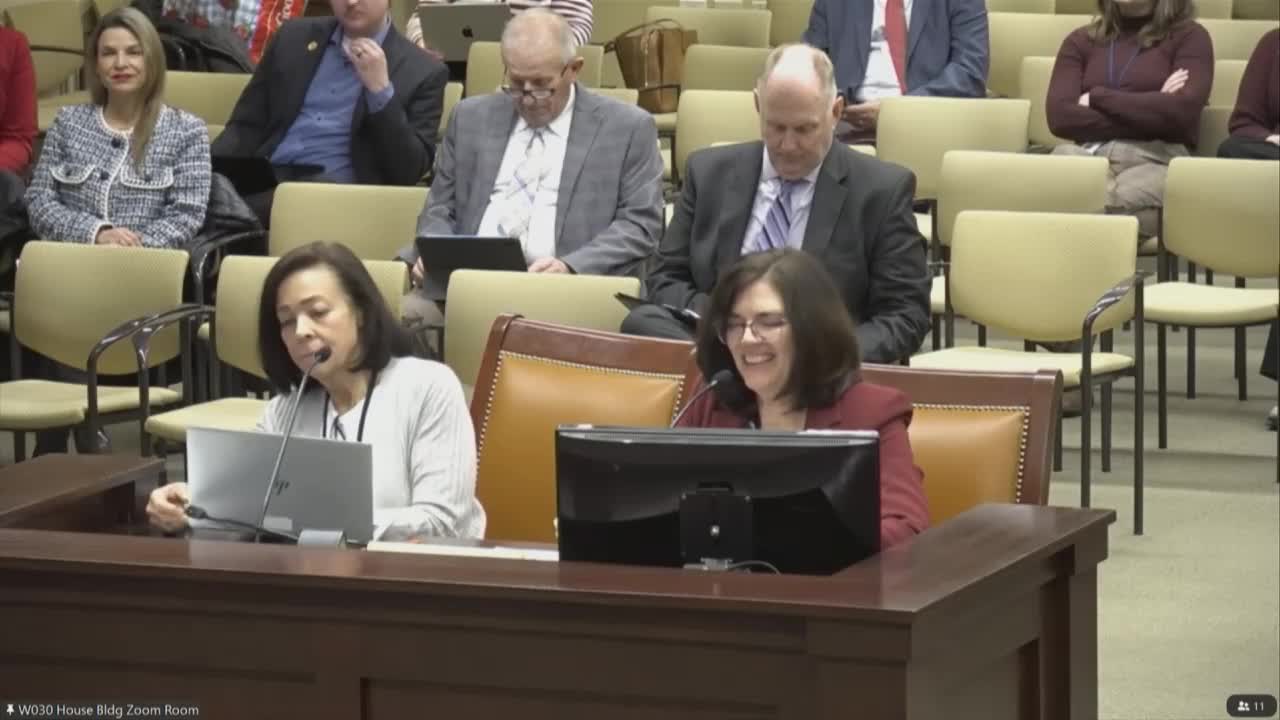Committee holds bill to ban salary‑history inquiries for state executive‑branch hiring
Get AI-powered insights, summaries, and transcripts
Subscribe
Summary
House Bill 180 would prohibit executive branch state employers from asking applicants for past compensation; committee held the bill to seek more information about exemptions and equity language.
Representative Bennion presented House Bill 180 on Feb. 14, saying the measure would codify a skills‑based hiring approach for the executive branch by prohibiting state executive‑branch employers from asking job applicants to disclose compensation history.
Jean Mills Barber of the Division of Human Resource Management (DHRM) told the committee that DHRM already conducts market surveys to set minimum and maximum salary ranges for state jobs and that executive‑branch hiring officials generally assess applicants based on skills, competencies and the market ranges rather than prior pay. Barber said approximately 22 states have laws restricting compensation‑history inquiries and cited California, Colorado and Nevada as examples with differing scopes.
The bill as drafted would apply to executive‑branch agencies but specifically carves out multiple entities, including higher education, the state board of education, local education agencies, the attorney general's office, the legislature, the auditor's office, the treasurer's office, the public service commission and other independent entities. Sponsors and committee members asked for more background on why those entities were exempted; Representative Bennion said he would follow up with committee members.
Members raised concerns about whether the bill would hamper hiring managers' ability to control costs or to value individual candidates with disparate prior pay; DHRM staff said the state already posts salary ranges and relies on budget constraints and market data when hiring. Public testimony was largely supportive: Blake (Utah Public Employee Association), Cynthia Washington (private-sector entrepreneur), Abby Hunsaker (Governor's Office of Economic Opportunity) and James Taggart (Ogden‑Weber Technical College) all urged committee support, saying skills‑based hiring improves equity and retention. Marilyn Mominee, a human‑resources executive in private industry, said the salary data point can be useful and questioned whether legislation was necessary for executive practice already in place.
Representative Romero moved to hold HB 180 temporarily to gather additional background information; the motion carried on a voice vote and the bill was held for further review. The sponsor agreed to return with answers about the carve‑outs and other clarifications.
